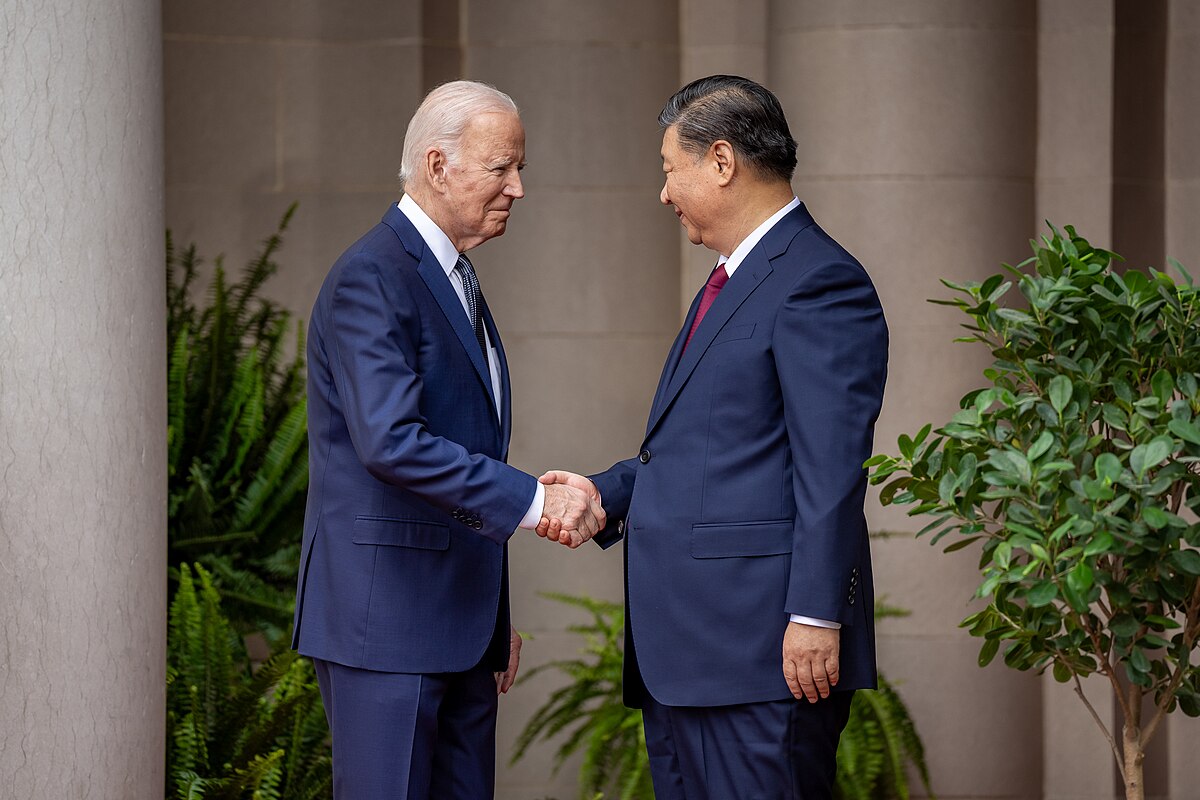Team Biden Heads to Vienna for Last-Ditch Iran Negotiation Attempt
The Biden administration is joining a last-ditch effort to revive the 2015 nuclear deal with Iran but holds low expectations that Tehran is prepared to shelve its demands for new concessions to reach an agreement.
The talks in Vienna this week are an attempt to close a deal to reenter the Joint Comprehensive Plan of Action, which eased international sanctions on Iran in return for restrictions on its nuclear program.
Last month, Josep Borrell, the European Union’s top foreign policy official, introduced an updated draft text for the 2015 deal, which he said addresses the final steps to returning to the pact.
But after 16 months of negotiations, Borrell said the time for major concessions was over and called on Iran to make a decision.
OPEC+ MEETING FIRST TEST OF BIDEN’S OUTREACH TO SAUDIS
“The space for additional significant compromises has been exhausted,” he wrote in a concurrent Financial Times op-ed.
Expectations that Iran would accept the deal on the table remain low, a national security council spokesperson said Wednesday, noting that Tehran would need to cease demands outside the original JCPOA’s purview. The spokesperson added that the United States has been prepared to reenter a deal based on an outline negotiated in March. Borrell’s proposal is based on the March text.
Iranian negotiators have pressed the U.S. to lift a terror designation on Iran’s Islamic Revolutionary Guard Corps, a demand publicly rejected by President Joe Biden. In response, a former U.S. official said Tehran was seeking sanctions relief for the IRGC’s main economic arm, a narrower concession, as well as a guarantee that the U.S. will not reimpose sanctions down the line.
The administration has been preparing the ground for the possibility that Iran will not accept the deal on the table. Speaking to think tank experts on a recent call, Biden’s top Middle East adviser said the prospect of reaching a deal in the near future was highly unlikely.
The White House’s Middle East coordinator, Brett McGurk, told the call that he thought Iran wanted Washington “to add something to the pot” to sweeten the deal, Axios reported. But McGurk said the administration did not intend to do so.
Tehran’s decision is also likely to be influenced by the U.S. political landscape, outside experts told the Washington Examiner.
The Trump administration exited the original pact in 2018 and reimposed sanctions on Iran, and Republican lawmakers have already pledged to reverse any sanctions relief granted by the current administration in exchange for a deal.
“If Iran bites, it’s because they’re willing to roll dice on a [Democratic Party] victory in 2024,” said Aaron David Miller, a senior fellow at the Carnegie Endowment for International Peace and former U.S. negotiator for Republican and Democratic administrations. “That’s a considerable risk.”
Biden’s prospects for reelection also hang in the balance, weighed down by soaring inflation. While the president has said he intends to run for reelection, Democratic analysts have begun to question the decision publicly.
Biden’s job approval has fallen to 38% in a new Gallup poll, dipping below 40% in the survey for the first time since taking office. The July 5-26 survey also finds that 59% disapprove of the job the president is doing, the highest number for him yet.
In the near term, polls suggest the Republican Party is poised to win control of the House of Representatives in the November midterm elections, which could pose a challenge to obtaining congressional approval for a deal if negotiations continue to stretch on.
U.S. Special Representative for Iran Robert Malley committed earlier this year to submitting any final agreement to Congress for review under the terms of the Iran Nuclear Agreement Review Act, giving lawmakers the power to block a deal.
Malley has indicated to Israel that he does not think Tehran will accept Borrell’s text, a senior Israeli diplomatic source told Al-Monitor. “In [Malley’s] opinion, this deal is dead,” the source told the publication.
Still, the rapidly advancing November timeline for the midterm elections could pose an incentive to securing a deal, allowing Tehran to capture some near-term concessions while Democrats still maintain control of Congress.
“Even if the deal collapses after the U.S. [presidential] elections, they haven’t lost that much if some of the funds are repatriated,” Brenda Shaffer, a senior adviser for energy at the Foundation for Defense of Democracies, said of Tehran.
CLICK HERE TO READ MORE FROM THE WASHINGTON EXAMINER
Incentivizing Iran to come to the table now, Shaffer said, is the risk that the administration could sign something “that Congress can make very difficult to implement.”
Despite the trials of the past 16 months, if a deal does come together, “it wouldn’t and shouldn’t surprise,” Miller said.
“In the world of negotiations, it’s often critical to beat down every door, go down every rabbit hole, try every trick in the book until it becomes clear that no deal is far worse and uncertain than whatever pain is involved by agreeing to one,” he added.
" Conservative News Daily does not always share or support the views and opinions expressed here; they are just those of the writer."





